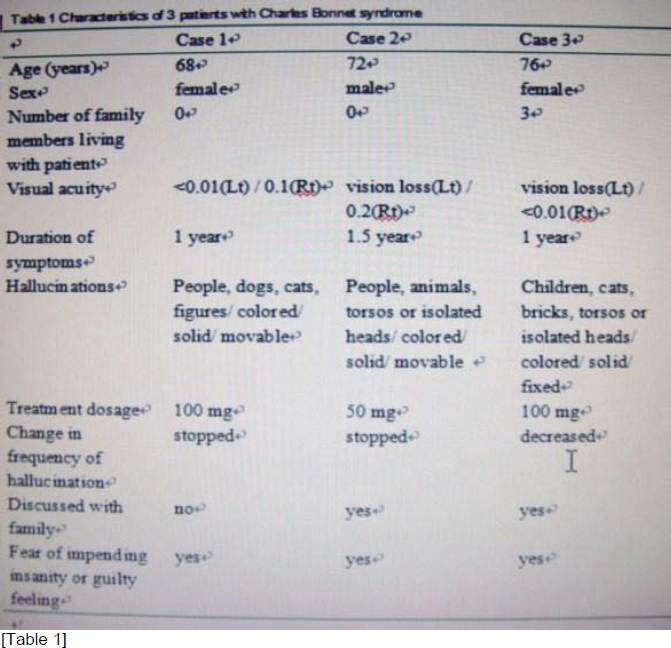Published online by Cambridge University Press: 16 April 2020
CBS becomes more prevalent as the population ages and the number of patients with low vision increases. Clinical features of CBS have been described as complex visual hallucinations with insight due to the vision loss or visual ability decrease in patients who’re otherwise mentally normal. We describe three typical CBS patients whose visual hallucinations developed after bilateral severe visual impairment due to diabetic retinopathy. They responded well to treatment with trazodone. The effectiveness of trazodone in these patients adds to evidence implicating serotonergic pathways in the pathogenesis of visual hallucinations.
The characteristics of 3 patients and their reactions are listed in table 1.

This is the first report describing the effectiveness of trazodone in treating typical CBS patients. It indicates that trazodone is an safer option for the treatment of CBS, especially in the elderly, diabetic population. In addition to having fewer interactions with comedications, trazodone has fewer adverse effects and relative lower body weight gain risk compared to anticonvulsants and neuroleptics. CBS is a condition that many clinicians aren’t very familiar with, yet it’s a surprisingly high prevalence rate (10%-30%) among the visually impaired. Clinicians must therefore keep in mind and ask elderly people with visual impairment whether they’ve hallucinations.
Comments
No Comments have been published for this article.